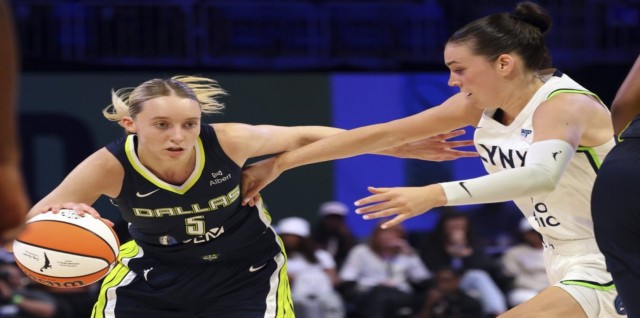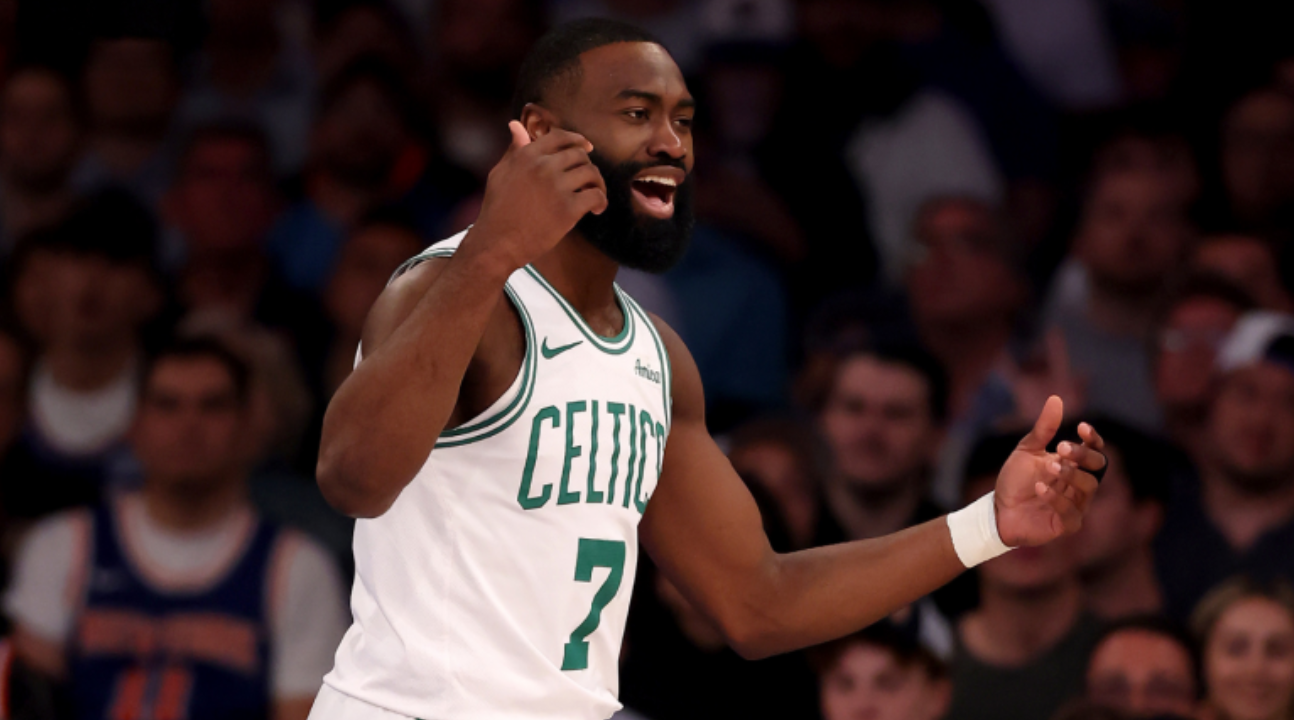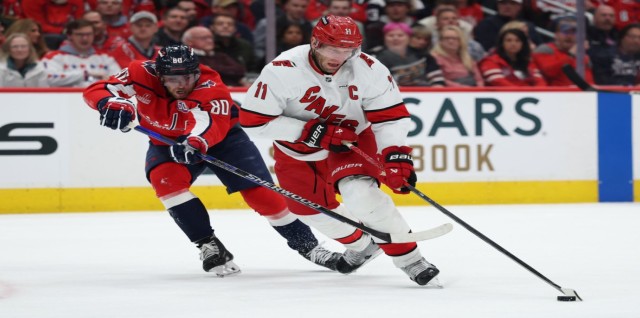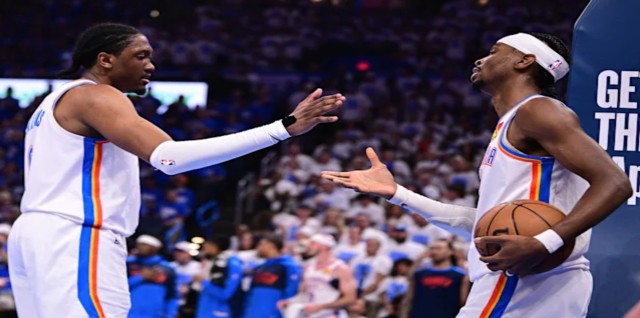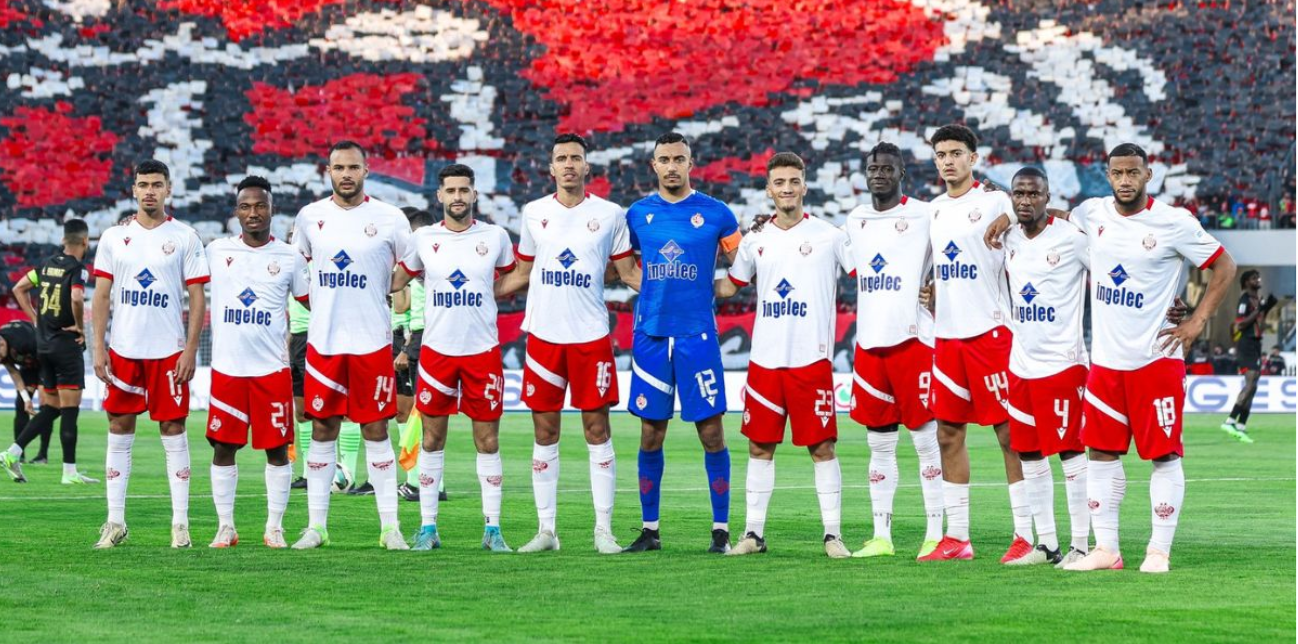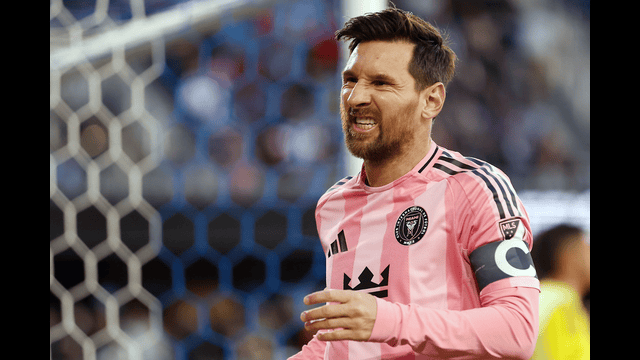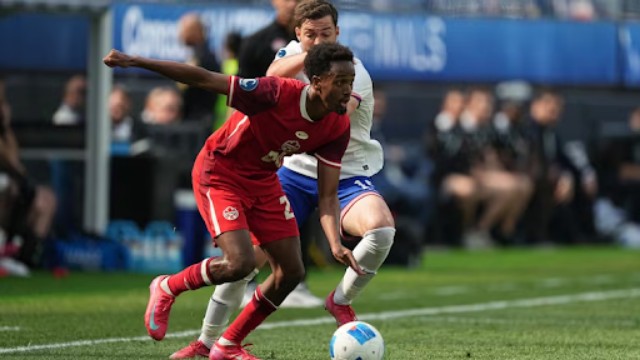
Ali Ahmed, 20, from Canada keeps possession while facing Max Arfsten of the United States during their match on Sunday in California. (Getty Images)
During Sunday’s Nations Cup match in Los Angeles, Canadian forward Jonathan David netted a crucial goal in the second half, leading Canada to a 2-1 victory over the U.S. His teammate, 24-year-old midfielder Ali Ahmed, set up the goal with a well-placed pass, securing Canada’s third-place finish ahead of their American rivals.
Ahmed has consistently played a key role in Canada’s national team, making game-changing plays at the highest level. However, what sets him apart is his ability to maintain peak performance while fasting for Ramadan, alongside his teammate Ismaël Koné.
Ramadan, observed from February 28 to March 30, requires Muslims to refrain from food and water from dawn to sunset. Beyond fasting, it is a time for deep spiritual reflection, patience, charity, and community bonding. Despite these physical restrictions, Ahmed remains committed to observing Ramadan, even during intense matches.
Speaking after Canada’s 2-0 semifinal loss to Mexico, Ahmed shared why he never considers skipping his fast. “Ramadan is a pillar of my faith, and Islam is the foundation of my life,” he said. “I’ve played while fasting for years, and strangely enough, I perform at my best during this time.”
Ahmed’s first appearance for the Vancouver Whitecaps in April 2022 also fell during Ramadan. He not only scored but assisted in that game, earning him the nickname “Ramadan Ali” from his teammates. They even joked that he should fast all year round because of his stellar performances.
Initially, his teammates were skeptical. “They kept asking, ‘Are you sure you can do this? No food? No water? This is insane!’” Ahmed recalled. But he assured them he could handle it, and he proved it on the field.

Canadian midfielder Ismaël Koné handles the ball against the U.S. on Sunday. (AFP via Getty Images)
Competing at an elite level without food and water is undoubtedly challenging. But for Ahmed and many Muslim athletes, the struggle is part of the experience, a way to connect with those who face food insecurity daily. While professional players have access to nutritionists and support staff, they have also learned to understand their bodies and adjust accordingly. Ahmed, for instance, skips team meals and relies on extra rest to maintain energy levels.
Sports organizations are beginning to accommodate fasting players. In England’s FA Cup, officials pause matches to allow Muslim athletes to break their fast. Ahmed usually eats a small energy bar and prays before kickoff, often in a room set up by the team staff. He appreciates this level of support, saying, “It’s amazing to see my team respect and facilitate my faith.”
Having a fasting teammate also makes the experience easier. Ahmed and Koné support each other in Canada’s squad, while at Vancouver, he connects with Belal Halbouni. Together, they discuss their suhoor meals and work with team nutritionists to maintain strength.
The camaraderie extends beyond the soccer world. University athletes like Paige Bueckers, a basketball star at UConn, have shown solidarity by preparing meals for their fasting teammates. For Ahmed, sharing this experience with others makes Ramadan even more special. While it is a deeply personal practice, it also fosters a sense of unity, proving that faith and sport can go hand in hand.



